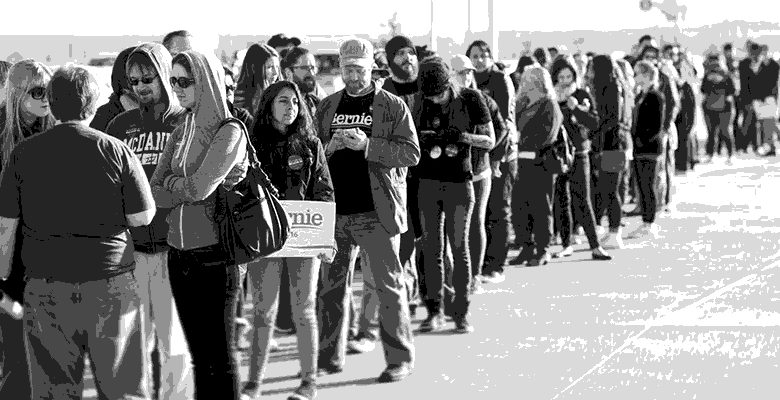Sometime in the murky past, the City moved the date of local elections to coincide with state and national elections. Local elections used to be in May, and now they fall in November.
The local English language daily endorsed the move with the ostensible goal of “encouraging more voter participation.”
Because voter participation is a good thing, right?
The real reason the local politicos (and hence, by extension, the El Paso Times) wanted to move local elections to coincide with national elections was to make citizens’ initiatives, like recalls, more difficult to get. Citizens initiatives require a fixed percentage of voters from the last local General Election, and national elections always draw more voters than the local elections.
Another benefit for the political class in El Paso is that media, like the El Paso Times, don’t have space or resources to cover both local and statewide or national politics, so local politics get short shrift. The local races get drowned out by coverage of the statewide or national elections.
And that’s a shame, because El Pasoans can influence local politics to a much greater degree than they can affect national politics, and local politics probably play a more integral part in the lives of El Pasoans than national politics, the current border situation notwithstanding.
Moving the election date helped the incumbents because the incumbents have more name recognition, and typically bigger war chests, because they’re in positions to help out the well-heeled citizens who benefit from local political largess. So the incumbents can buy more yard signs, and advertising, and hire more block walkers.
With the lack of local media coverage for local races, we get more voters to the polls, but they’re mostly uninformed voters who feel obligated to vote in the local elections even if they don’t know the candidates, because, you know, we’re all supposed to vote.
(Personally, I usually under-vote more than half of the local races because I don’t want to accidentally contribute to bad government.)
If we want to change local politics, we’re going to have to do the heavy lifting. We’re going to have to inform the uninformed. We have to talk to our friends and neighbors. But more than that. We have to talk to strangers. We have to go door to door, and to community meetings.
I’ve got some ideas of how we can fix local politics that I’ll share with you later.


I suspect that there are a couple of other things that used to be different and that used to help inform local voters and get them to the polls. Once upon a time everybody listened to the radio, in their car, at work, and at home. We listened to AM radio, mostly, and we got more than just music. We got local and national news on the hour, and it wasn’t just fluff designed to get us to listen in later. It actually did tell us what was going on locally and nationally. We also got newspapers delivered to our door, and those newspapers were full of real news, and we actually read them! Beyond these two things, we also got better and more comprehensive news reporting from our televisions. Anybody remember Marlin Haines, “The Dean of Southwest Broadcasters?” Or, Gary Warner, who was way better than anybody we’ve got these days?
Technology can help assist in spreading info quickly. We would just have to capitalize on how to utilize it.
Technology is great, but we need to reach the people who aren’t online, or who are only online to play World of Warcraft.
We need to meet them where they are. At home. In church. At community meetings, or in beer halls.
But we can definitely use technology to organize.